Every year on 5 October the world recognises the vital role teachers play in shaping future generations as we celebrate World Teachers’ Day. At St Jude’s, this day is one of our favourites on the calendar, as we proudly honour the dedication and passion of all our teachers who inspire students to dream big.
We value every contribution and the hard work our teachers pour into helping students thrive. Recently, we caught up with Ms Janeth, one of our primary school English teachers, to hear more about her passion for teaching.
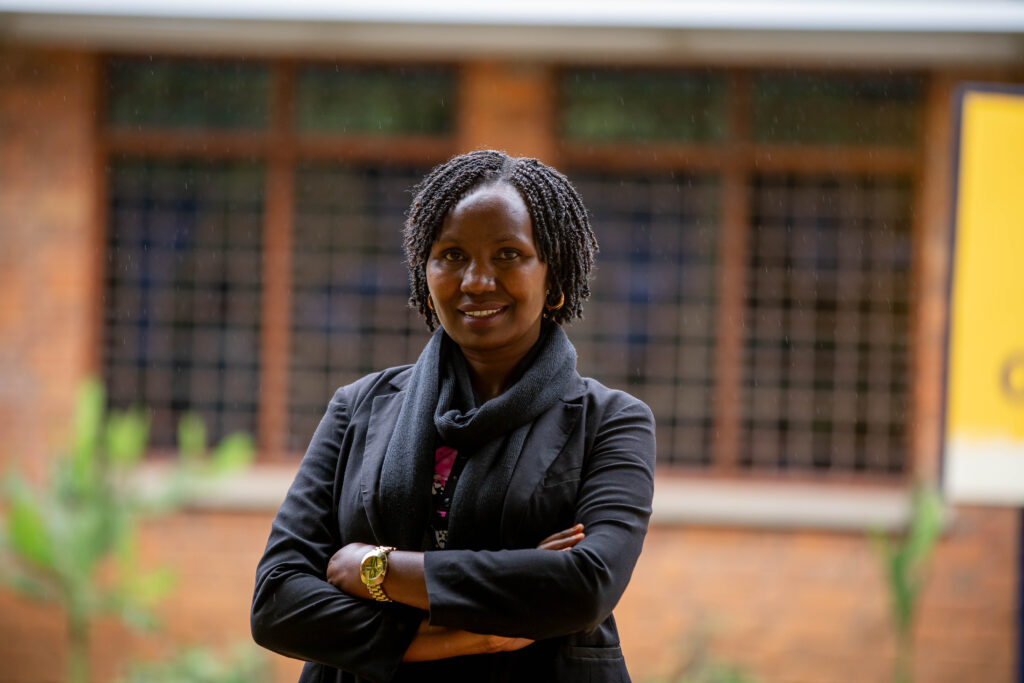
Yes, I always wanted to be a teacher because I always wanted to see young children grow and achieve their dreams. I have been teaching for 10 years now, and I am still happy to see my students growing, something that I have always dreamt about.
Nurturing students from the beginning and helping students to perform well. It’s always great to see them progressing and learning new things about the world around them.
It is very important to recognise the hard work of teachers and see the challenges that we are going through. I am lucky to work in a wonderful team of teachers and I am happy to be appreciated.
Love the job! Because teaching is a calling, and being a teacher, you should always be committed, since teaching is endless learning.
We’re excited to announce the launch of a brand-new Spoken English Immersion Program in 2026, designed to specifically help St Jude’s students improve their spoken English skills. We sat down with Geoff and Annette, the two Australians leading the project, to hear more about its mission and what participants can expect.
Geoff is an Honorary Research Fellow at the University of Queensland and Annette is an Industry Fellow at the University of Technology Sydney. We are lifelong educators. Geoff was an upper primary school teacher and Annette a high school teacher before we gained our PhDs 15 years ago and moved to academia, working as researchers and teacher educators. We’ve worked and researched in multiple countries, presented at many international conferences and written books, book chapters and journal articles for both teachers and researchers. Since leaving full time academia, we’ve presented teacher professional learning workshops and conducted research on the development and implementation of education programs.
We are keen travellers and have visited various countries on the African continent twelve times. We visited St Jude’s twice in 2012 as part of a research project, during which we ran professional learning workshops for the teachers at St Jude’s and other schools in and around Arusha. We always wanted to return and support the school, so when we saw that Gemma was seeking someone to lead the Spoken English Immersion Program at St Jude’s, we were inspired to apply for the position as a team. Having developed masters-level programs and research programs at multiple universities, we have the necessary expertise and experience to lead the program and its development, implementation, and evaluation, not only in 2026, but in future years too.
The volunteer team will arrive at St Jude’s on the 17 June 2026, and after two days of collaborative planning on June 18 and 19 will commence teaching the students for two full weeks from June 22 to July 4. The most important goal of the program is to support the St Jude’s students to strengthen their spoken English language skills and to have fun at the same time. An important part of this process involves providing the students with many opportunities to listen and respond to native English speakers.
We are planning to have the outline of the program developed well in advance of the start date to ensure that the volunteer team have a clear understanding of what is required and to give them the opportunity to develop any supporting resources or materials that will allow them to deliver an exciting program to their students.
We believe that success of the program will be reflected in the students’ willingness to speak more confidently without fear of making mistakes, and of course if they are enjoying themselves while learning. We hope that the program will become an annual event and look forward to building on its success to strengthen future programs.

We will work with around 300 students and 30-40 volunteers. The volunteer team will be invited to contribute their ideas about games, activities, themes and topics that they feel will encourage and support the students to participate and enjoy themselves in each class. This will ensure a collaboratively planned program.
The program will run for two full weeks (Monday to Saturday each week) and each day, each volunteer will work with five classes of 10 students (meaning that they will work closely with 50 students in total), enabling development of rapport and a supportive classroom environment with the goal of enhancing students’ willingness to use their English language skills in a diverse range of enjoyable contexts and activities. The program is structured so that volunteers will have colleagues who share the same students and others who are teaching the same lessons as them. This allows volunteers to be able to support each other, plan together, and collaborate on the needs of the students in their shared classes.
Beyond the classroom activities, volunteers will participate in a cultural program developed by the St Jude’s visitor team. Activities may include lessons in Kiswahili, drumming, Zumba, and cooking as well as home visits and outings to craft markets or local restaurants. We hope that the program and the broader cultural experiences will create a collegial and enjoyable working environment for the volunteer team.
We are most excited about meeting and working with the students as well as collaborating with and working alongside the volunteers. It is a privilege for us to be able to contribute to what we believe will be a strong and valuable program that helps students and teachers at St Jude’s. We are also very excited about the opportunity to learn more about Tanzanian culture.
First and foremost, all volunteers need to have the capacity to use and interpret lesson plans and sequences so that they can deliver meaningful learning experiences to the students. They must also have strong oral communication skills. As this is the first year of the program, we didn’t use strictly defined criteria, and we definitely couldn’t foresee the high level of response from applicants keen to join the program as volunteers. Obviously, some background as an educator would be an asset, as is the capacity to adapt and respond quickly to the needs and interests of the students. All volunteers need to have a sense of humour, resilience and self-reliance, as well as the ability to work in a team, which are central to working in such an intensive program with colleagues. As the program involves people from numerous countries, willingness and capacity to communicate promptly and using various online platforms are essential. We will of course be evaluating the program and in future years, the criteria may well be refined as we learn more about the program, its delivery, and most importantly, the students themselves.
We have a database for recording the details of anyone who may be interested in applying for the 2027 program. Applicants should first consider the criteria mentioned above and can email us (annetteandgeoff@gmail.com) with their names and email addresses (no CVs or cover letters yet). Once the 2027 program is announced, we will contact people on the database with a link to information about the application process.
This year’s theme, “Living Our Tanzanian Identity,” was vividly brought to life by our students through a vibrant array of activities, including fashion shows, traditional dances, drama, and delicious local cuisine. Events like this offer a wonderful opportunity to experience the vibrant diversity of our community and the richness of Tanzanian culture.
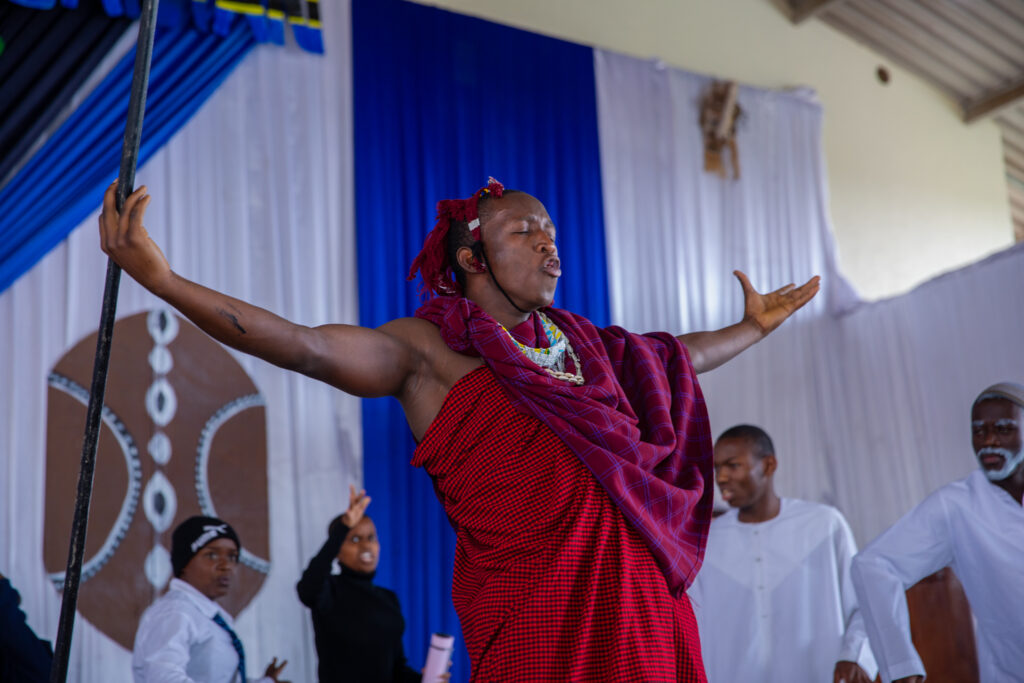
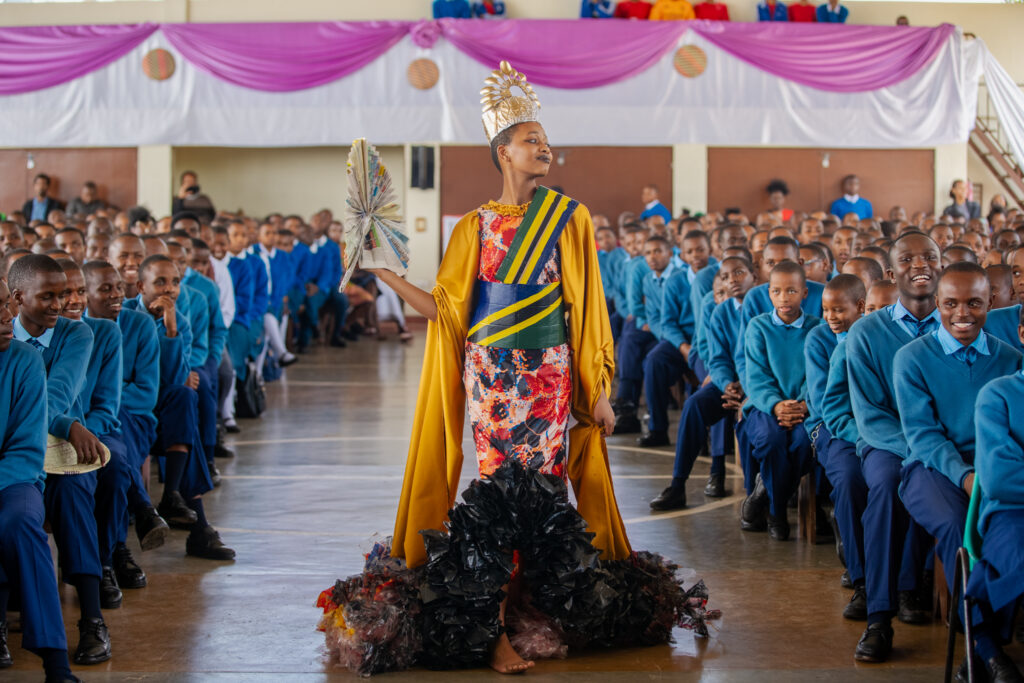
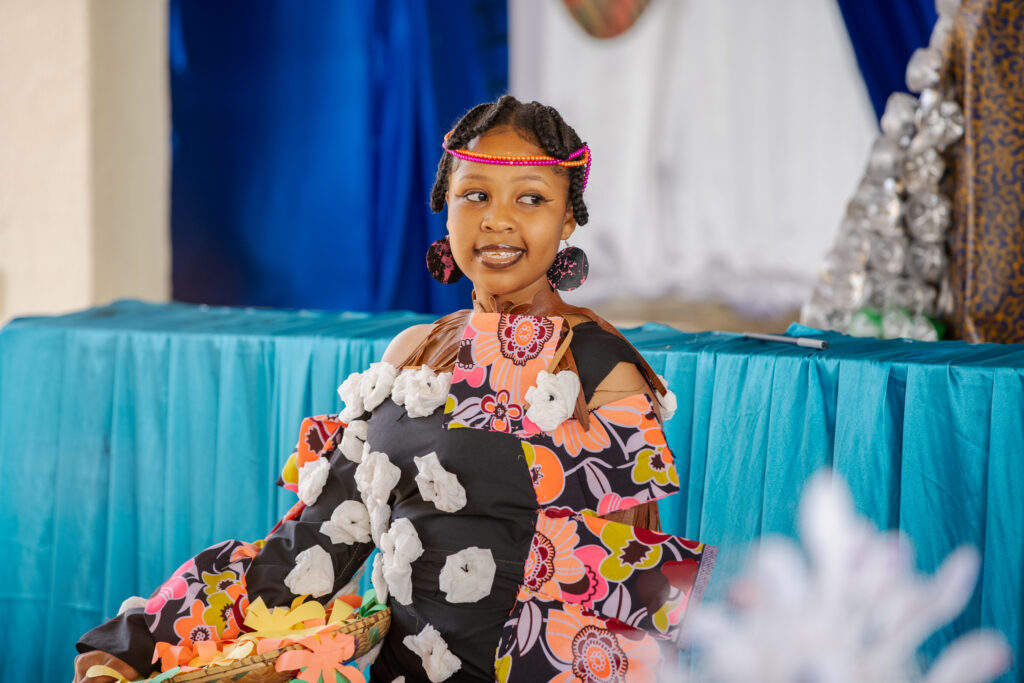
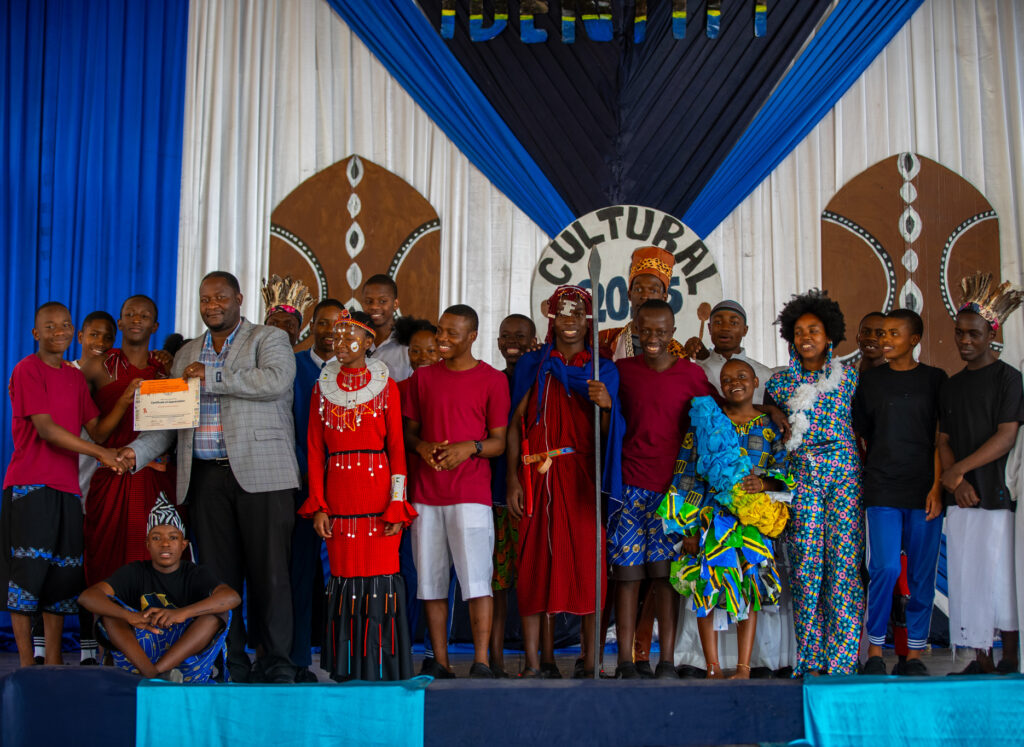
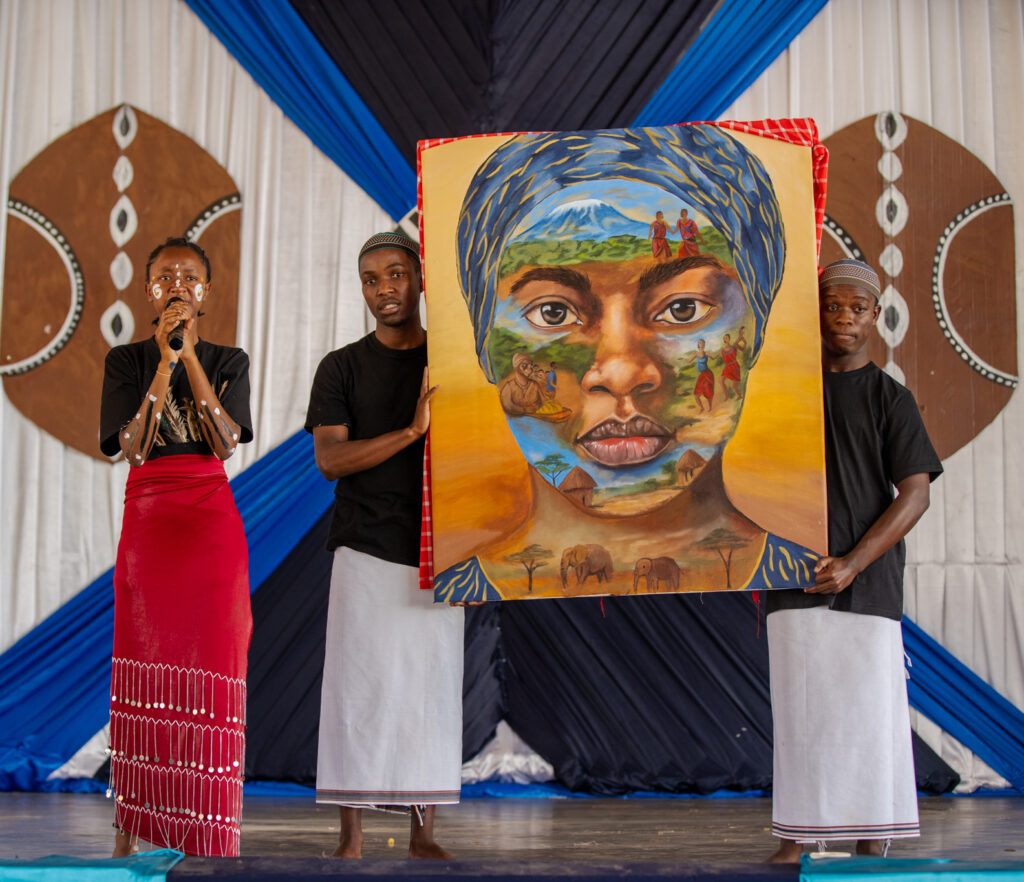
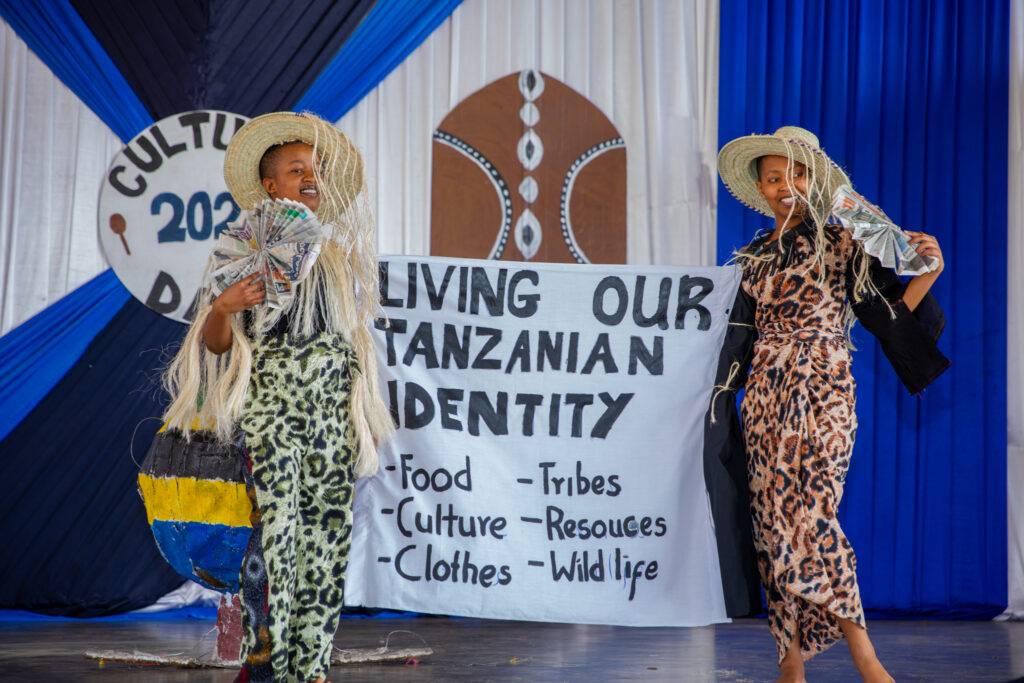
Our Form 1 students from St Jude’s Girls’ Secondary School have launched an exciting new agricultural project: a hands-on journey in vegetable farming. From land preparation to harvest, students have cultivated Chinese cabbage while gaining practical skills in sustainable food production. The result? A thriving garden, fresh produce, and a newfound pride in growing their own food.
Ms Monica, the agriculture teacher at the girls’ school who is spearheading the new initiative, says students have responded with great enthusiasm.
“The project motivates more Form 1 students since they have participated in all stages, from land preparation to harvesting. They were happy to consume the vegetables they produced themselves. It is also inspiring other classes and staff to come to visit the garden. Seeing this motivates them to practice vegetable gardening too.”
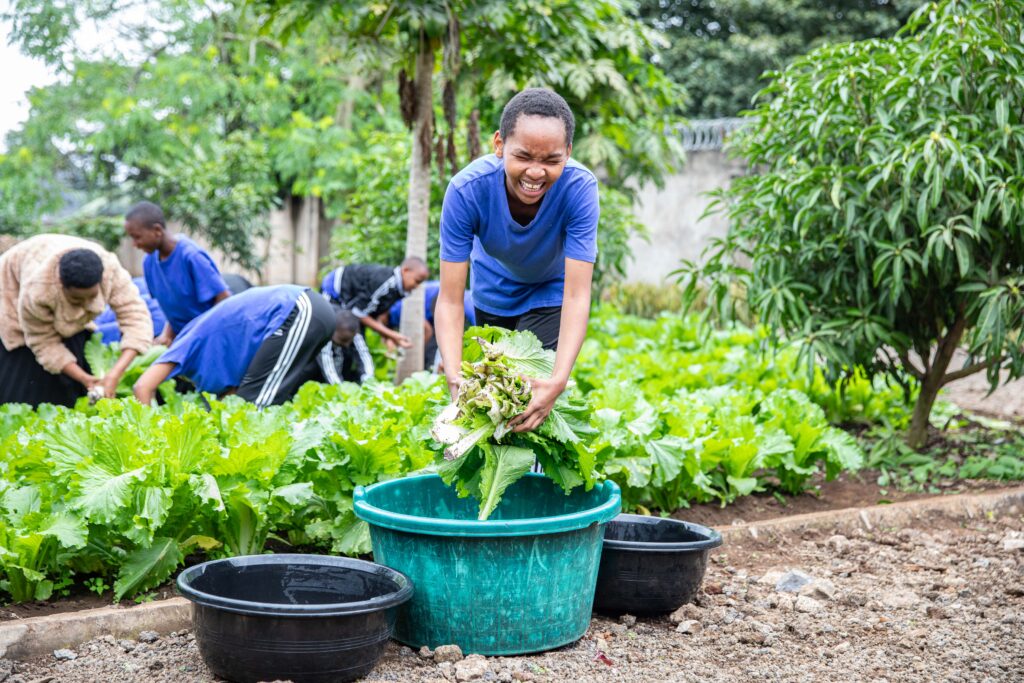
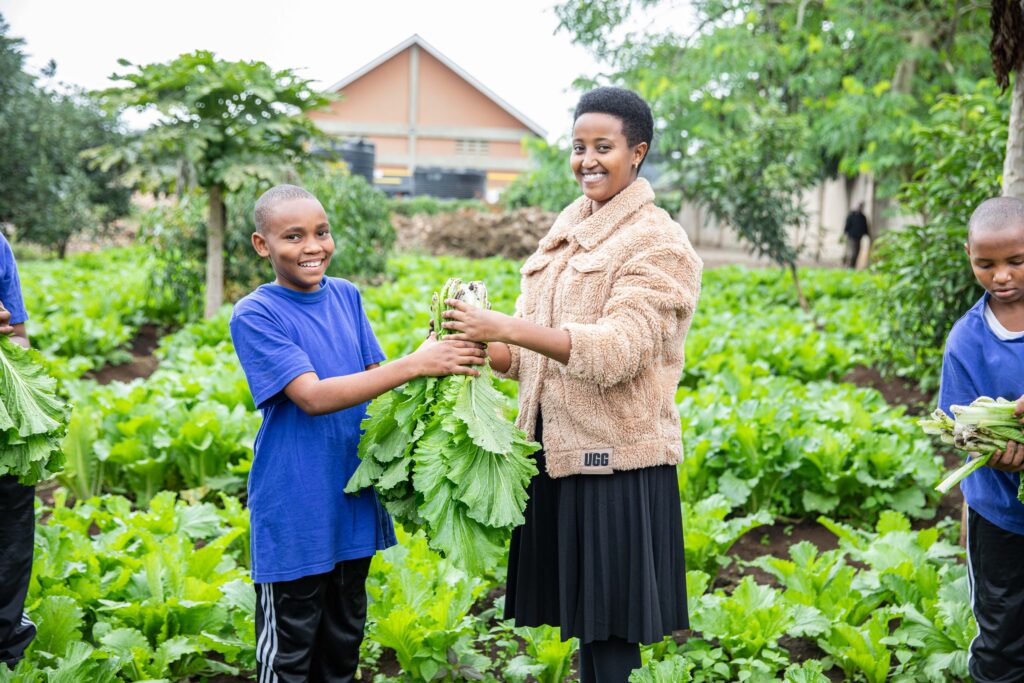
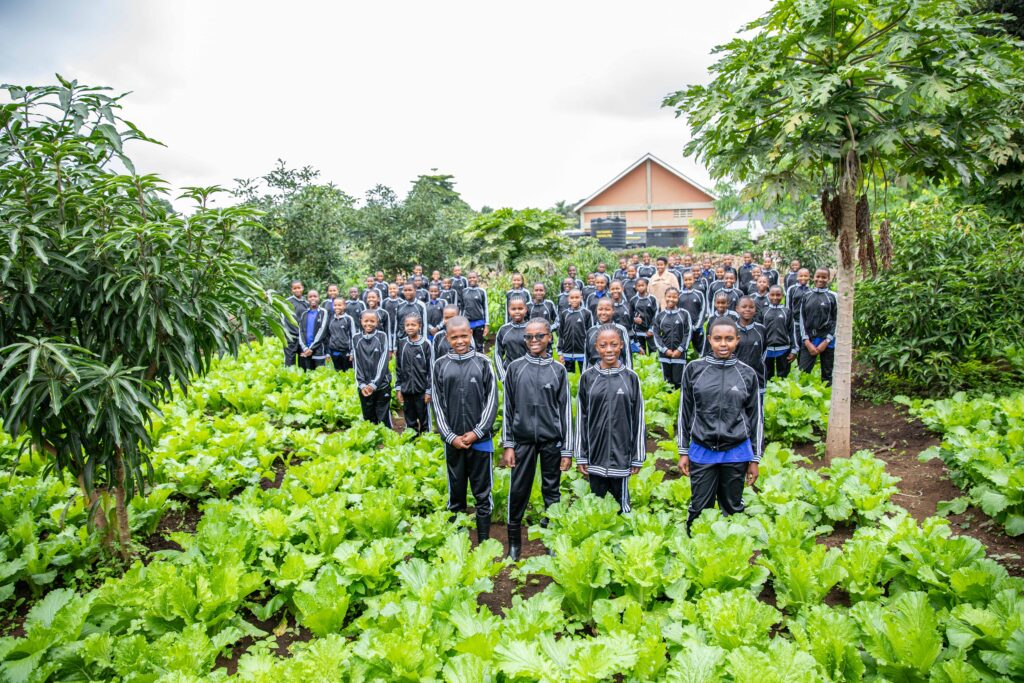
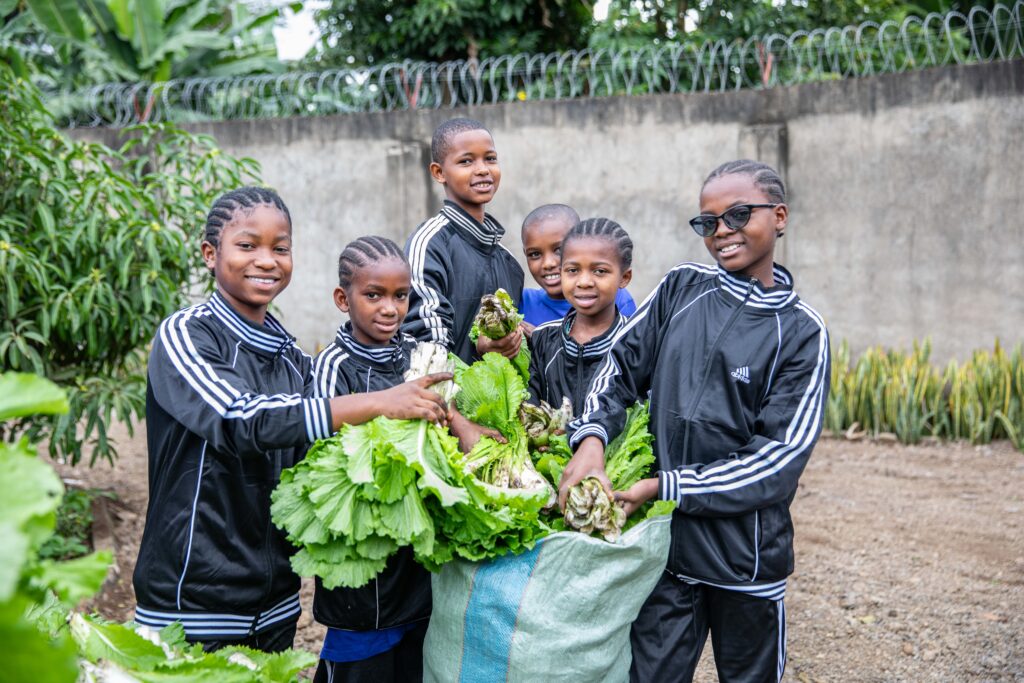
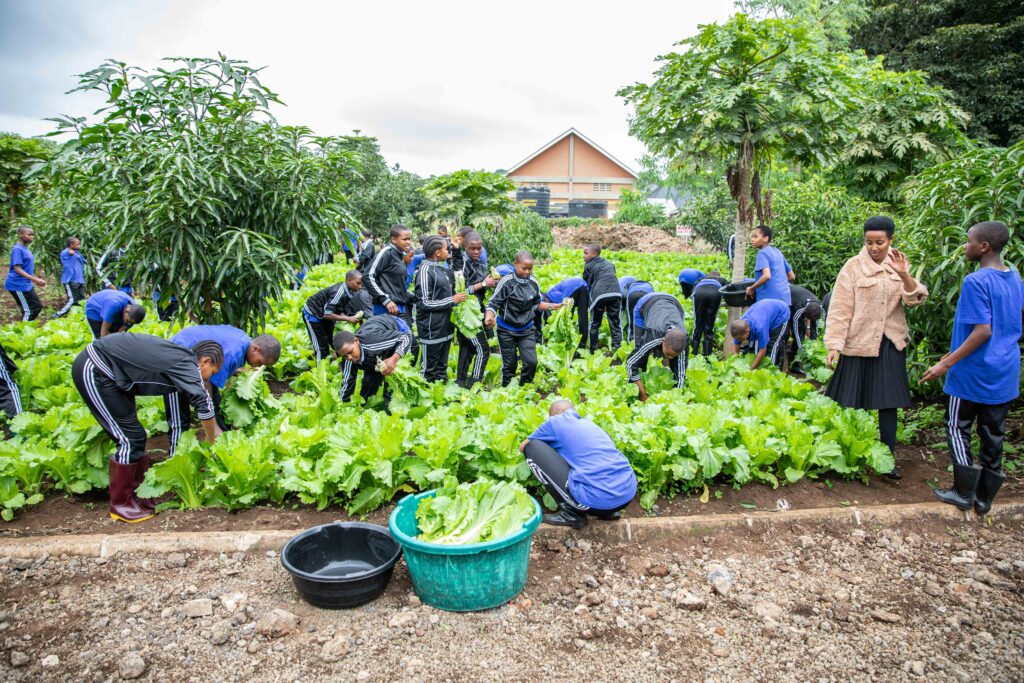
Throughout 2024, ten-year-old Lily, a Year 5 student in Australia, ran her own fundraiser to support The School of St Jude. Her parents, long-time supporters of the school, have visited Tanzania and previously taken part in fundraisers, such as running 10km at the 2023 Bridge2Brisbane event to raise money for St Jude’s.
Inspired by her family’s dedication, Lily wanted to make a difference herself. Using her talent for creating beautiful jewellery, she launched her own fundraiser and worked hard throughout the year to raise funds for the school. Here, she shares some of her favourite moments from the experience.
I was inspired to help St Jude's as I want children to have just as good an education as me. I like jewellery and enjoy wearing it, so I thought I would make some and sell it. I made beautiful earrings.
I raised AU$800.
The best part was seeing people smile when they purchased the earrings and raising money for St Jude's.
I sold the jewellery at the Brisbane High Rise Rotary club. I was supported by my parents and Bibi and Babu (grandparents), Noela and Bill Phillips.
Keep raising money and don't give up!
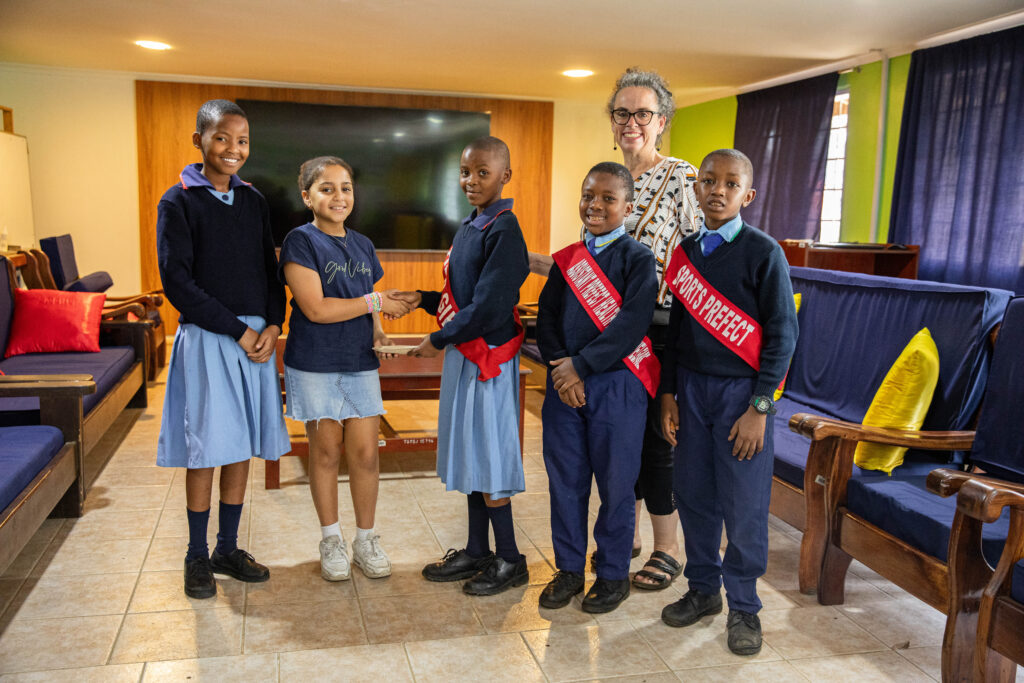
This month, long-time supporter and American Friends of The School of St Jude (AFSJ) President, Laurel, returned to the school for the Form 6 Graduation. On her eighth visit, we caught up with her to find out what keeps bringing her back.
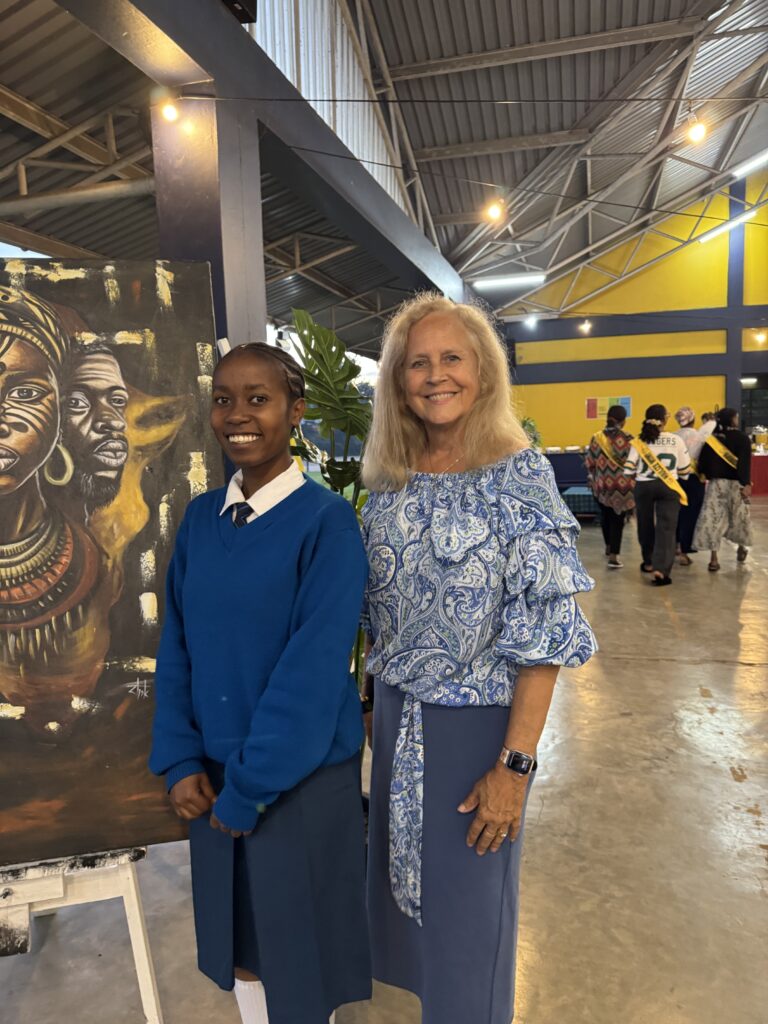
I was president of my Rotary Club then, and I was intrigued after hearing a talk about The School of St Jude. We decided it would be our international project. We initially tried sending parcels with supplies, but then decided it would be better to visit the school ourselves. While a Rotary grant wasn't possible, we started meeting students and my club began sponsoring Beatrice, who graduated this year. So even though she's not listed as a student I sponsor, I financially support her through the club.
Watching them blossom and grow and work towards their dreams has been phenomenal. Take Abdullah, for example. When I first saw him in 2021, his artwork was done on graph paper, and he told me his real dream was to work in animation. With the help of the Art Program and other school staff, he created a portfolio, and eventually, we found a university in South Africa for him to study animation. It's incredibly exciting to see him pursuing his passion. I have students who have gone all the way through to Form 6 and are now in tertiary education. I also have ones who are at the beginning of their journey like Jafari, who's in Form 3.
I think the most exciting thing is that they're all given an equal opportunity at St Jude’s, yet they're all so different. Being able to sponsor multiple students, you see that they're allowed to become their own person. But the common factor is all of those values that are instilled in them at The School of St Jude; the idea that someone has helped you, now you get to help someone else. Watching them apply that through their own strengths is incredibly rewarding. Whether it's Elia potentially becoming a sportsman, Abdallah in his art element, Happiness wanting to be a bank manager or Samwel aspiring to be a doctor - the school equips them all to do different things, and that's what's most exciting.
Initially, I didn't know a lot about the school beyond what I'd read and heard. But because this is my eighth visit, I've gotten to watch the students grow up and evolve. I've also become involved on another level with the board of the American Friends of The School of St Jude, doing fundraising and tours. This has made me feel really comfortable and passionate about the school, making it easy for me to share what's happening here with different groups in the United States. My comfort level has grown to the point where I can now facilitate things like a FaceTime call for a friend's sponsored student to connect with them during graduation.
You can't describe it. No matter what you try to tell them or what a picture looks like, it's not the same. When they come, they will be forever changed and they'll understand firsthand what the work of the school is. Until they're here, they really don't understand. Once they experience it, they can't help but want to sponsor and support a student, whether it's a partial or full sponsorship. I also reassure them about coming to Tanzania, the school will take care of them, they won't be on their own, and communication isn't an issue. The culture here, where people genuinely take care of each other and share, is something truly remarkable that you only fully grasp by being here.